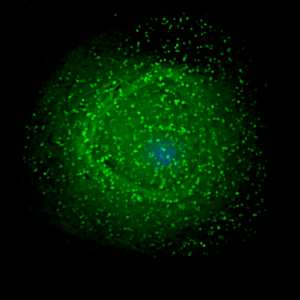Developing an effective HIV vaccine may require the induction of broadly neutralizing antibodies (bnAbs). Studies in non-human primates have shown that these antibodies are able to prevent these animals from acquiring SIV/SHIV. This proof of principle and other experimental evidence has led scientists to look more closely into developing an antibody-based vaccine for HIV.
However, producing bnAbs is rare as only about 20% of HIV-infected people will produce these special antibodies and it usually takes 2-3 years for them to be produced. Therefore, more research must be done to understand the characteristics of bnAbs, understand why some people are able to make them while others cannot and how the process can be expedited.
Researchers at Duke University, USA, led by Barton Haynes investigated the immunological differences between 51 HIV-infected individuals who produced broadly neutralizing antibodies and 51 HIV-infected individuals who did not.
They found that people who produced bnAbs had more autoantibodies (antibodies against one’s own cells), fewer regulatory CD4 T cells, more memory T follicular helper cells and high PD-1 expression on Tregs.
The fact that production of bnAbs is a rare event in HIV-infected individuals poses a challenge in antibody-based vaccine design. These immunological conditions identified by the scientists may make a person more likely to develop bnAbs. Therefore, this study suggests that a vaccination regime may need to mimic this immune state observed in bnAb-producing individuals to be effective in producing bnAbs in vaccinees.
Journal article: Moody et al., 2016. Immune perturbations in HIV-1–infected individuals who make broadly neutralizing antibodies. Science Immunology
Article by Thandeka Moyo












